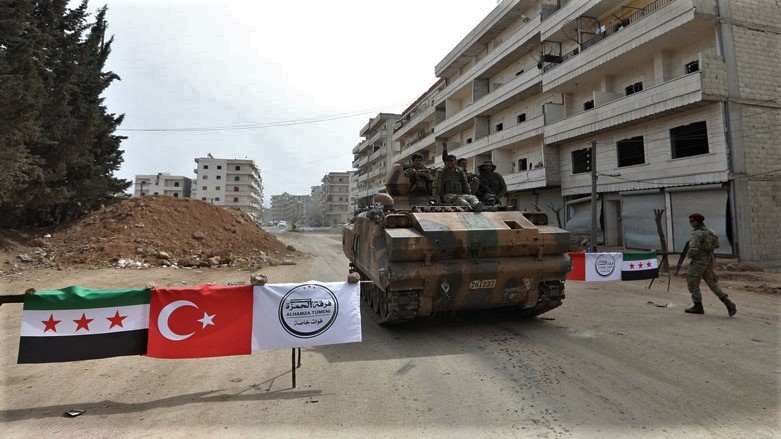Dutch government did not support terrorist groups in Syria: commission
“Incidentally, the investigation did not find any indications that the Netherlands supported groups that could be classified as jihadist or terrorist.”

ERBIL (Kurdistan 24) – A report published by a government commission under the leadership of a former army commander major-general Patrick Cammaert on Friday concluded that the Dutch authorities did not support Jihadist or terrorist groups while supporting Syrian rebel factions in Syria.
Read More: Dutch government backed groups involved in ethnic cleansing in Afrin: Experts
Investigative reports by the Dutch newspaper Trouw and TV program Nieuwsuur in 2018 revealed the Dutch government had supported rebel groups despite knowledge of human rights violations, sparking a fierce debate in Dutch parliament.
Moreover, the Dutch government also supported Jahbat al-Shamiya, although Dutch state prosecutors were trying to indict a member of the same group as a “terrorist.” This led to the creation of a commission to investigate the claims by the Dutch media that the Dutch authorities supported terrorist groups.
However, the report notes that the Dutch program was aimed to support ‘moderate armed opposition’ and not to support jihadist or terrorist groups or groups that work closely with them.
“Incidentally, the investigation did not find any indications that the Netherlands supported groups that could be classified as jihadist or terrorist,” the report said.
“The NLA programme focused on supporting the moderate armed opposition in Syria, without lending support to jihadist or terrorist groups, or groups working closely with such groups. The committee has found no evidence of any violation of this policy,” the committee also said.
Nevertheless, the report noted that “the (Dutch) programme did, however, take significant risks. In a war situation such as the one in Syria, keeping a complete overview of all the groups involved is by definition impossible.”
“It would also be unrealistic to expect that armed groups in this conflict – including those supported by the Netherlands – would be able to keep clean hands. Moreover, location-based coordination and cooperation between different groups fighting at the frontlines is common and, from a military-tactical perspective, in some cases necessary. Even when it comes to incidental collaboration on some occasions with terrorist or jihadist groups in order to survive or repel attacks,” the report added.
The report also notes that the Dutch government decided to stop NLA-projects in northern Syria due to the Turkish incursion in Afrin (Jan 2018-March 2018) and the loss of territory of the ‘moderate opposition’.
The Dutch government supported 22 armed groups in north and south Syria between May 2015 and March 2018 through the Non-Lethal Assistance (NLA) program.
The report also notes that the Dutch Ministry of Foreign Affairs did everything to directly stop support to groups that participated in the incursion in Afrin and that Dutch diplomats told rebel commanders that participation in the Turkish offensive would end Dutch support.
As a result, the support for two groups was canceled in January 2018. In March 2018, the program was stopped in northern Syria, and in June 2018, the program was also stopped in southern Syria.
